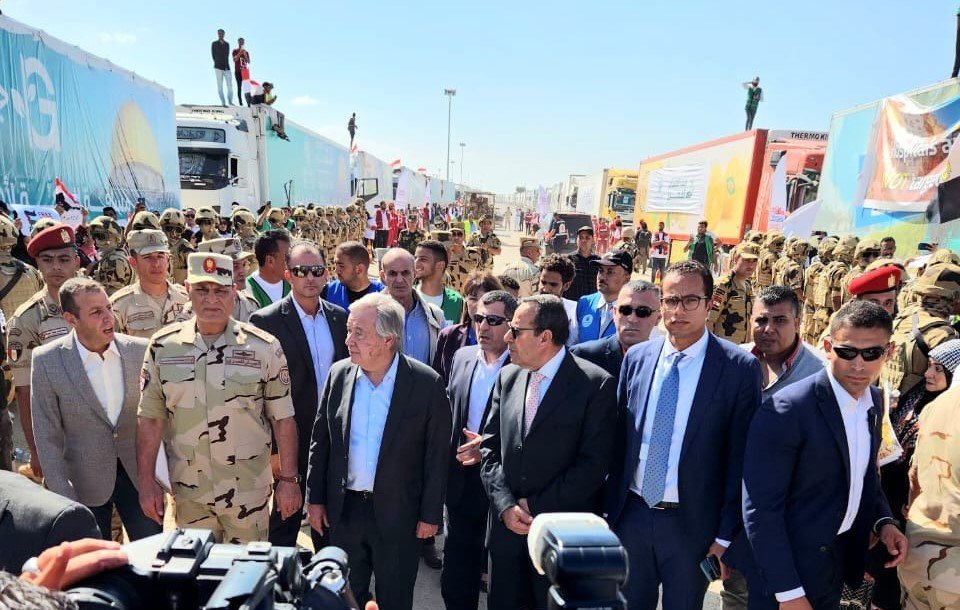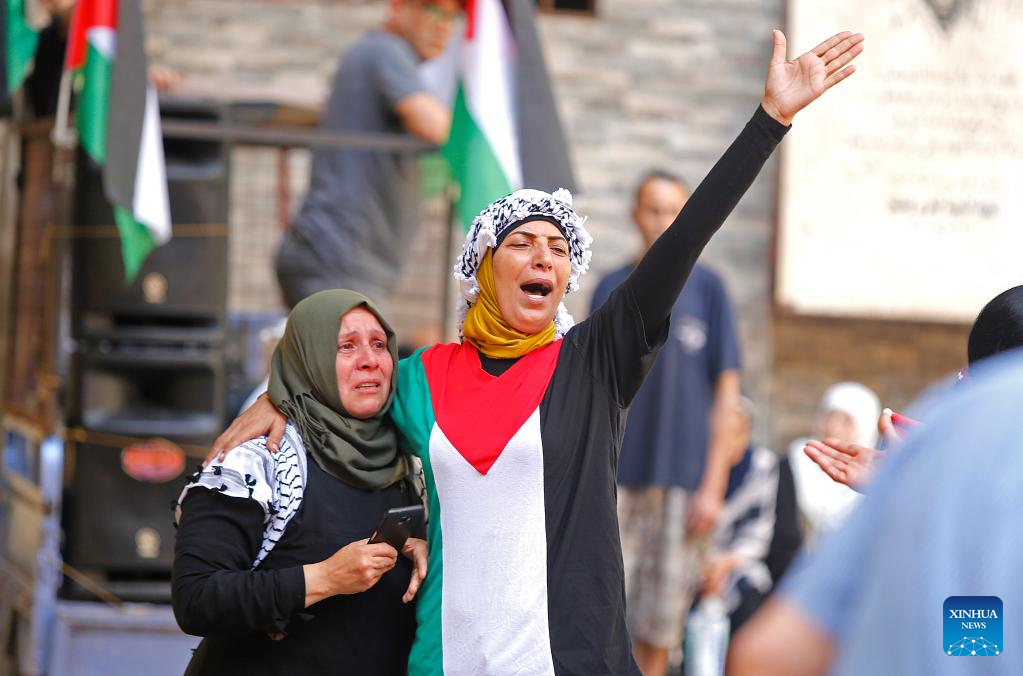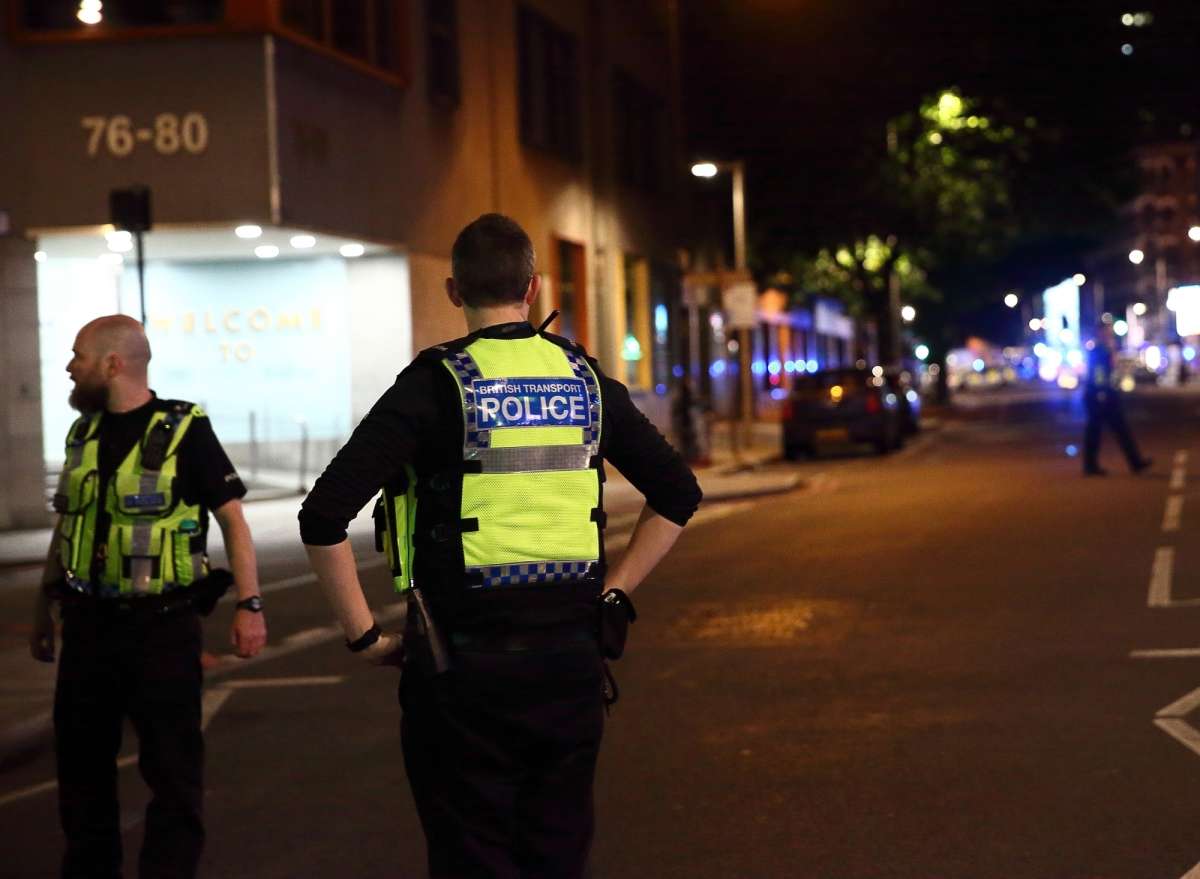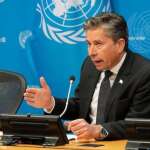Guterres used all his diplomatic prowess to get Israel to agree to allow the supplies from Egypt into Gaza in an arrangement involving Cairo, Washington and the UN….reports Arul Louis
After a fortnight of diplomatic cajoling and appeals to conscience by UN Secretary General Antonio Guterres, and a dose of international pressure, a small convoy of 20 trucks loaded with relief supplies tentatively crossed the Rafah border from Egypt to bring succour to the 2 million people trapped by Israel’s blockade of Gaza.
For a UN powerless to deal with the Gaza crisis — or the broader Palestine issue for 75 years — sending aid to Gaza was a tiny victory and a stab at relevance.
Although Israel allowed the trickle of 20 trucks into Gaza nominally under its occupation and facing a threat of attacks on unauthorised vehicles, the UN programme’s future hangs in the balance.
But 200 other trucks loaded with food, medicine and fuel were parked at the Egypt-Gaza border while officials from Egypt, Israel, and the US haggled over the terms for them to move into Gaza.
“They are a lifeline to the people in Gaza”, Guterres said, “the difference between death and life, with water, with food, with medicines, with everything the people of Gaza need”.
Israel’s blockade of Gaza as reprisal for the terrorist attack launched on October 7 by the Hamas group that rules the territory has cut off power, water and supplies of medicine, fuel, and other essential supplies.
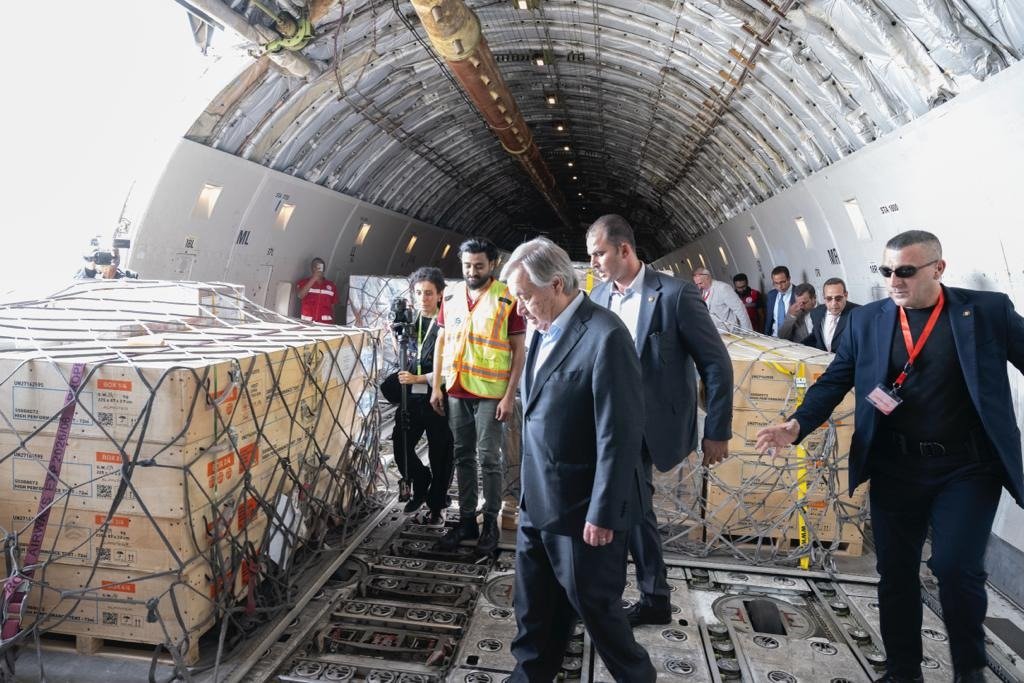
In that attack over 1,400 people were killed in Israel and about 200 were taken hostage by marauding Hamas terrorists.
Israel’s retaliation has caused nearly 4,000 deaths, Palestinian authorities say.
Guterres used all his diplomatic prowess to get Israel to agree to allow the supplies from Egypt into Gaza in an arrangement involving Cairo, Washington and the UN.
He got some help from US President Joe Biden who also pressured Israel to agree to allowing 20 trucks to cross into Gaza, far less than the 200 ready to roll.
However, for the UN and Guterres, the bigger goal is stopping Israel from launching the threatened ground offensive to annihilate Hamas that could cause massive civilian casualties and from the conflict spilling over the region.
One barrier to allowing the UN convoy – inspecting the trucks to ensure they are not carrying weapons – appears to have been breached, but others – whether they can go to northern Gaza which Israel has ordered to be emptied out as it prepares for ground invasion of the area, and resistance to allowing fuel to be sent in – remain.
Guterres said on Friday: “We are now actively engaging with all the parties, actively engaging with Egypt, with Israel, with the US, in order to make sure that we are able to clarify those conditions, that we are able to limit those restrictions in order to have as soon as possible these trucks moving to where they are needed.”
Guterres also wants the relief arrangement to go beyond 20 trucks to a regular arrangement.
“We are not looking for one convoy to come, we are looking for convoys to be authorized, with meaningful numbers of trucks to go everywhere into Gaza to provide enough support to the Gaza people,” he said.
That would be a tough sell to Israel, which is preparing a ground offensive.
The UN, ultimately, is at the mercy of Israel which can destroy convoys entering Gaza.
The blockade has been described as a collective punishment, which is a violation of international law.
Guterres said: “I have repeatedly said that the barbaric attack by Hamas needs to be condemned. But I’ve also said they can not be a pretext for a collective punishment of the Palestinian people. It’s absolutely essential to respect international humanitarian law.”
United Arab Emirates Permanent Representative Lana Zaki Nusseibeh, made the distinction earlier last week: “Hamas does not represent the Palestinian people, or the people of Gaza, who are suffering immensely today.”
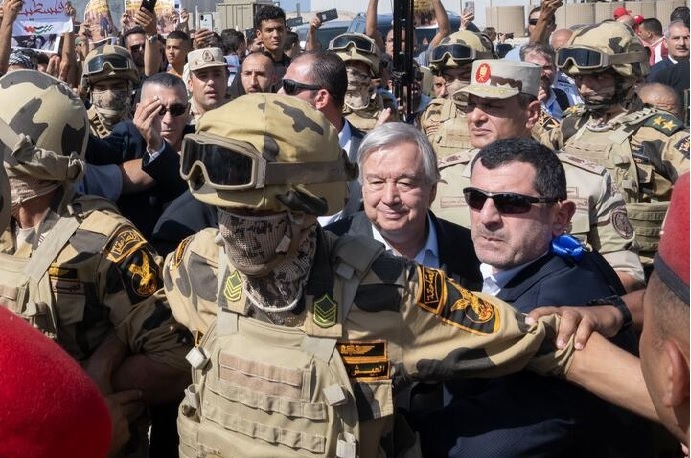
The UN launched in 1949 the aid programme for the Palestinian refugees displaced in the creation of Israel the previous year is the single largest such programme and it has an annual budget of $1.6 billion and more than 13,000 employees.
Known as the UN Relief and Works Programme (UNRWA), it operates in Gaza and the West Bank, but also in neighbouring countries with Palestinian refugees, running health centres, educational institutions and food distribution programmes.
UNRWA will be distributing the aid sent through the Rafah Crossing.
Guterres said: “To be able to distribute aid on that side, it is necessary that UNRWA has fuel and so we need to have the guarantee that we have enough fuel on the other side to distribute aid to the people in need.”
Israel has reservations about fuel going into Gaza because of fears it could be commandeered by Hamas for its military activities.
In the other major conflict, Russia’s invasion of Ukraine, where the UN has been rendered a helpless bystander because of the Security Council veto stalemate, Guterres gained a small symbolic victory through the Black Sea Grain Initiative that allowed food grains from Ukraine to be shipped out to stabilise the global supplies and to help nations facing severe food shortages.
But that was been shortlived because Russia has withdrawn from it threatening ships carrying Ukrainian foodgrains.


